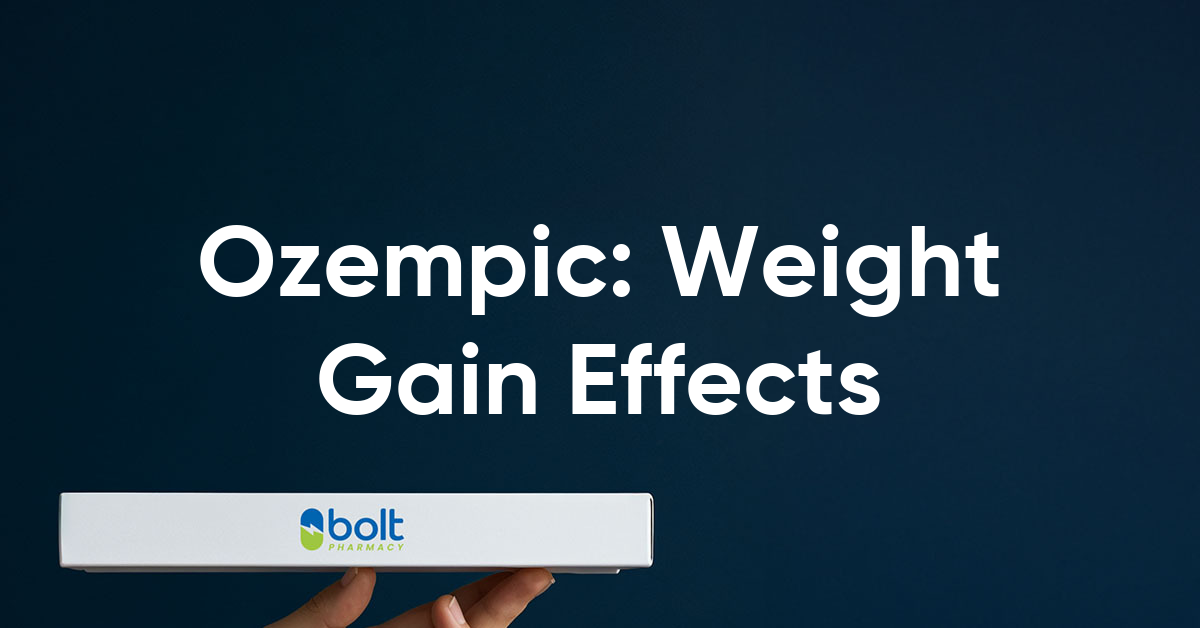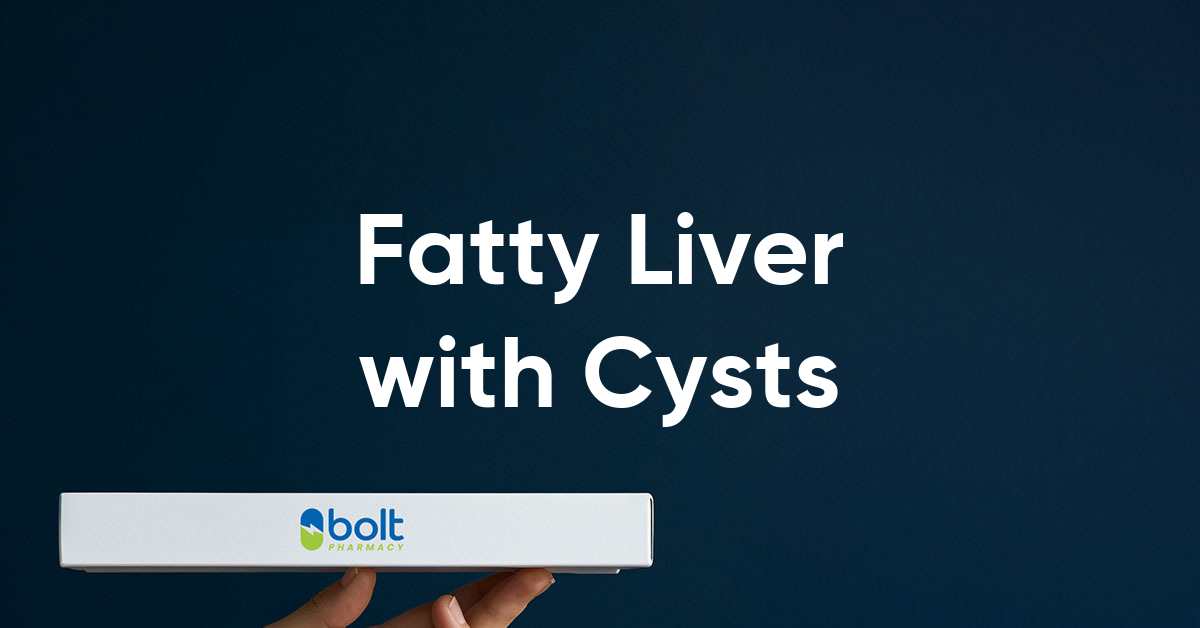Ozempic (semaglutide) is a GLP-1 receptor agonist licensed in the UK for type 2 diabetes management, typically associated with weight loss. However, some patients experience unexpected weight gain or fail to lose weight whilst taking this medication. Gaining weight on Ozempic can result from various factors including medication interactions, underlying health conditions, fluid retention, dietary compensation, or subtherapeutic dosing. Understanding these mechanisms and working closely with your GP or diabetes specialist nurse helps identify causes and adjust treatment appropriately. This article explores why weight gain may occur, when to seek medical advice, and evidence-based strategies to optimise outcomes whilst taking Ozempic.
Summary: Weight gain on Ozempic can occur due to medication interactions, underlying endocrine conditions, fluid retention, dietary compensation, subtherapeutic dosing, or metabolic adaptation despite semaglutide's typical weight-reducing effects.
- Ozempic (semaglutide) is a GLP-1 receptor agonist licensed in the UK for type 2 diabetes that typically promotes weight loss through appetite suppression and delayed gastric emptying.
- Concurrent medications (antidepressants, antipsychotics, corticosteroids, insulin) may counteract semaglutide's weight-reducing effects and should be reviewed by your GP.
- Rapid weight gain with breathlessness or swelling requires prompt medical assessment to exclude cardiac or renal complications rather than fat accumulation.
- Dose optimisation (from 0.5 mg to 1 mg or 2 mg weekly), medication review, or referral to specialist services may be considered when weight gain occurs on therapeutic doses.
- Lifestyle factors including protein-rich diet, 150 minutes weekly physical activity, adequate sleep, and stress management remain essential for weight management outcomes on Ozempic.
Table of Contents
- Why Weight Gain Can Occur While Taking Ozempic
- Common Factors That Affect Weight Changes on Semaglutide
- When to Speak with Your GP About Unexpected Weight Gain
- Adjusting Your Treatment Plan: What Options Are Available
- Lifestyle Factors That Support Weight Management on Ozempic
- Scientific References
- Frequently Asked Questions
Why Weight Gain Can Occur While Taking Ozempic
Ozempic (semaglutide) is a glucagon-like peptide-1 (GLP-1) receptor agonist licensed in the UK primarily for managing type 2 diabetes mellitus, though it has also demonstrated significant weight loss effects in clinical trials. The medication works by mimicking the action of the naturally occurring GLP-1 hormone, which enhances insulin secretion in response to meals, suppresses glucagon release, slows gastric emptying, and reduces appetite through central nervous system pathways. These mechanisms typically lead to reduced caloric intake and subsequent weight loss in most patients.
However, some individuals may experience weight gain or fail to lose weight whilst taking Ozempic, which can be unexpected and concerning. It is important to understand that weight gain is not a listed adverse reaction in the UK Summary of Product Characteristics (SmPC); individual weight changes can still occur due to behavioural, metabolic, or comorbidity factors. Weight changes represent a complex interplay between the medication's effects, individual metabolic responses, concurrent medications, underlying health conditions, and lifestyle factors.
Several physiological explanations may account for weight gain in this context. Some patients may experience weight gain due to underlying cardiac or renal conditions, though semaglutide itself is not known to cause oedema. Others may develop compensatory eating behaviours once the initial appetite-suppressing effects diminish or if the dose remains subtherapeutic. Additionally, metabolic adaptation can occur, where the body adjusts its energy expenditure in response to reduced caloric intake. Patients should also be aware that rapid improvement in glucose control can transiently worsen diabetic retinopathy; any new visual symptoms should be reported promptly to healthcare providers.

Common Factors That Affect Weight Changes on Semaglutide
Multiple variables influence weight trajectory during Ozempic treatment, and recognising these factors helps patients and clinicians identify potential causes of unexpected weight gain.
Medication interactions represent a significant consideration. Concurrent use of other medications known to promote weight gain—such as certain antidepressants (particularly mirtazapine and some selective serotonin reuptake inhibitors), antipsychotics, corticosteroids, beta-blockers, or insulin—may counteract semaglutide's weight-reducing effects. Patients taking multiple medications should have their entire prescription reviewed to identify potential contributors. It's important to note that combining a DPP-4 inhibitor with a GLP-1 receptor agonist is not recommended; the DPP-4 inhibitor should typically be discontinued when starting a GLP-1 receptor agonist.
Dosing and treatment duration also matter considerably. Ozempic is typically initiated at 0.25 mg weekly for four weeks, then increased to 0.5 mg weekly, with potential escalation to 1 mg weekly if required for glycaemic control. For patients requiring additional glycaemic control, a 2 mg weekly dose is now authorised in the UK. Some patients may not reach therapeutic doses that produce appetite suppression, or they may be in the early titration phase where effects are not yet fully established. Weight loss with GLP-1 receptor agonists typically occurs gradually over several months.
Underlying endocrine conditions can significantly impact weight regulation. Hypothyroidism, Cushing's syndrome, polycystic ovary syndrome (PCOS), perimenopause, obstructive sleep apnoea, or other hormonal imbalances may impede weight loss despite appropriate medication. Additionally, insulin resistance severity varies among individuals with type 2 diabetes, and those with more pronounced metabolic dysfunction may experience slower or less predictable weight changes.
Fluid retention should be considered, particularly in patients with heart failure, chronic kidney disease, or those experiencing peripheral oedema. This may manifest as weight gain on the scales without actual fat accumulation. Finally, dietary compensation—where patients unconsciously or consciously increase caloric intake during periods when they feel less restricted—can offset the medication's appetite-suppressing effects, particularly if portion sizes increase or food choices shift toward more energy-dense options.
When to Speak with Your GP About Unexpected Weight Gain
Patients should contact their GP or diabetes specialist nurse if they experience unexpected weight gain whilst taking Ozempic, particularly under certain circumstances that may indicate underlying medical issues requiring investigation.
Rapid weight gain over days to weeks, especially with swelling or breathlessness, warrants prompt medical review. This pattern may suggest fluid retention rather than fat accumulation and could indicate cardiac decompensation, renal impairment, or other serious conditions requiring urgent assessment. Patients should seek same-day advice if weight gain is accompanied by breathlessness, ankle swelling, reduced urine output, or chest discomfort. For severe breathlessness, chest pain, or other concerning symptoms, contact NHS 111 for urgent advice or 999/A&E in emergency situations.
Weight gain accompanied by other concerning symptoms requires medical evaluation. These include:
-
Persistent fatigue, cold intolerance, or constipation (suggesting hypothyroidism)
-
Excessive thirst, increased urination, or blurred vision (indicating poor glycaemic control)
-
Abdominal pain, nausea, or vomiting (potential pancreatitis, a rare but serious adverse effect)
-
Right upper quadrant pain, jaundice, pale stools, or dark urine (possible gallbladder disease, which has increased risk with GLP-1 receptor agonists)
-
New visual symptoms including floaters or blurred vision (potential diabetic retinopathy complications)
-
Mood changes, particularly low mood or increased anxiety
-
New or worsening oedema in the legs, ankles, or face
Lack of expected weight loss after three to six months at therapeutic doses should also prompt discussion with your healthcare provider. Whilst Ozempic is primarily licensed for diabetes management rather than weight loss specifically, most patients do experience some degree of weight reduction. Absence of this effect may indicate the need for dose adjustment, additional investigations, or consideration of alternative or adjunctive therapies.
Before your appointment, it is helpful to maintain a brief record of your weight measurements (ideally taken at the same time of day, using the same scales), dietary patterns, physical activity levels, and any new symptoms. This information assists your GP in identifying potential causes and determining appropriate next steps, which may include blood tests, medication review, or referral to specialist services.
Adjusting Your Treatment Plan: What Options Are Available
When weight gain occurs on Ozempic, several therapeutic adjustments may be considered following thorough assessment by your healthcare team. Treatment modifications should always be undertaken under medical supervision, as abrupt changes can affect glycaemic control and overall diabetes management.
Dose optimisation represents the first consideration. If you are taking a lower maintenance dose (0.5 mg weekly), your clinician may recommend increasing to 1 mg weekly, or potentially to 2 mg weekly if additional glycaemic control is needed, provided this is appropriate for your individual circumstances and tolerability. Higher doses generally produce more pronounced appetite suppression and weight loss effects. However, dose escalation must be balanced against potential adverse effects, particularly gastrointestinal symptoms such as nausea, vomiting and diarrhoea, which are usually mild-to-moderate, often transient, and typically dose-related.
Medication review and adjustment of concurrent prescriptions may be necessary. Your GP may consider alternatives to weight-promoting medications where clinically appropriate. For example, switching from certain antidepressants to others with more weight-neutral profiles, or adjusting insulin or sulfonylurea regimens to reduce doses if glycaemic control permits, which can mitigate hypoglycaemia risk and potential weight gain. This requires careful consideration of the primary indication for each medication and should never be undertaken without professional guidance.
Alternative treatment approaches may be explored in selected cases. For patients whose primary goal is weight management alongside diabetes control, NICE guidance (NG28) supports considering SGLT2 inhibitors, which are generally weight-neutral or beneficial. If a GLP-1 receptor agonist is ineffective, switching to an alternative GLP-1 receptor agonist might be considered, though GLP-1 receptor agonists should not be used in combination with each other. DPP-4 inhibitors should be discontinued when initiating GLP-1 receptor agonists.
Switching to alternative GLP-1 receptor agonists might be considered. Other medications in this class, such as dulaglutide (Trulicity) or liraglutide (Victoza), have different pharmacokinetic profiles and may produce different responses in individual patients. Additionally, higher-dose semaglutide formulations (such as Wegovy 2.4 mg, licensed specifically for weight management) may be appropriate for certain patients meeting specific NICE criteria (TA875), though this requires specialist weight management services and is typically limited to a 2-year treatment duration. It's important to note that NHS England advises against off-label use of Ozempic for weight loss due to ongoing supply shortages affecting patients with diabetes.
Referral pathways should be considered when first-line adjustments prove insufficient. This may include referral to specialist diabetes services, endocrinology, or tier 3 weight management programmes, depending on local service availability, Integrated Care Board (ICB) policies, and individual clinical circumstances.
Lifestyle Factors That Support Weight Management on Ozempic
Optimising lifestyle factors remains fundamental to achieving weight management goals whilst taking Ozempic, as medication alone rarely produces optimal outcomes without supportive behavioural changes.
Dietary considerations are particularly important. Whilst semaglutide reduces appetite, the quality and composition of food intake significantly influence weight outcomes. Patients should focus on:
-
Protein-rich foods at each meal (lean meats, fish, eggs, legumes, dairy) to support satiety and preserve lean muscle mass during weight loss
-
High-fibre vegetables and whole grains to promote fullness and support digestive health
-
Adequate hydration (1.5–2 litres daily for most people, though those with heart or kidney conditions should follow clinician advice on fluid intake) to distinguish thirst from hunger and support metabolic processes
-
Mindful eating practices, including eating slowly, recognising fullness cues, and avoiding distractions during meals
-
Limiting ultra-processed foods, which are typically energy-dense but nutrient-poor and may not trigger appropriate satiety signals
-
Avoiding heavy alcohol consumption, particularly given the increased risk of pancreatitis with GLP-1 receptor agonists
Physical activity plays a crucial role in weight management and metabolic health. Current UK Chief Medical Officers' guidelines recommend at least 150 minutes of moderate-intensity activity weekly, plus strength training twice weekly. Additionally, it's beneficial to minimise prolonged sitting and break up sedentary time throughout the day. For patients with type 2 diabetes, regular physical activity improves insulin sensitivity, supports cardiovascular health, and helps preserve muscle mass during weight loss. Activities should be tailored to individual capabilities and preferences to ensure sustainability.
Sleep quality and stress management significantly influence weight regulation through effects on hunger hormones (ghrelin and leptin) and cortisol levels. Aim for 7–9 hours of quality sleep nightly, and consider stress-reduction techniques such as mindfulness, relaxation exercises, or cognitive behavioural approaches if chronic stress is present.
Monitoring and accountability support long-term success. Regular self-weighing (weekly rather than daily to avoid discouragement from normal fluctuations), food diaries, or activity tracking can help identify patterns and maintain motivation. Many patients benefit from support groups, either through NHS services, Diabetes UK resources, or structured weight management programmes.
Realistic expectations are essential. Healthy, sustainable weight loss typically occurs at 0.5–1 kg weekly. Whilst some patients experience more rapid initial losses on Ozempic, weight loss often plateaus after several months, which is physiologically normal and does not indicate treatment failure. Patience, consistency, and ongoing engagement with healthcare support services optimise long-term outcomes.
Scientific References
Frequently Asked Questions
Why am I gaining weight on Ozempic when it's supposed to help me lose weight?
Weight gain on Ozempic can occur due to several factors including concurrent medications that promote weight gain (such as certain antidepressants or insulin), fluid retention from underlying heart or kidney conditions, or compensatory eating behaviours once appetite suppression diminishes. Additionally, you may be on a dose that's too low to produce significant appetite suppression, or metabolic adaptation may be occurring where your body adjusts its energy expenditure in response to reduced calorie intake.
Can other medications I'm taking stop Ozempic from working for weight loss?
Yes, several medications can counteract Ozempic's weight-reducing effects, including certain antidepressants (particularly mirtazapine), antipsychotics, corticosteroids, beta-blockers, and insulin. If you're taking multiple medications, ask your GP to review your entire prescription list to identify potential contributors to weight gain.
What's the difference between gaining actual fat and water weight whilst on semaglutide?
Rapid weight gain over days to weeks, especially accompanied by swelling in your ankles or legs, breathlessness, or reduced urine output, typically indicates fluid retention rather than fat accumulation. This pattern may suggest cardiac or renal issues requiring urgent medical review, whereas gradual weight gain over weeks to months is more likely to represent actual fat accumulation from dietary or metabolic factors.
When should I contact my GP about unexpected weight changes on Ozempic?
Contact your GP if you experience rapid weight gain with swelling or breathlessness, weight gain accompanied by symptoms like persistent fatigue or abdominal pain, or if you've had no weight loss after three to six months at therapeutic doses. Before your appointment, keep a brief record of your weight measurements, dietary patterns, and any new symptoms to help identify potential causes.
Can I switch to Wegovy if I'm gaining weight on Ozempic?
Wegovy (higher-dose semaglutide at 2.4 mg) is licensed specifically for weight management and may be appropriate if you meet specific NICE criteria, but it requires referral to specialist weight management services and is typically limited to a two-year treatment duration. NHS England currently advises against off-label use of Ozempic for weight loss due to ongoing supply shortages affecting patients with diabetes, so any switch must be discussed with your healthcare team.
What dietary changes can help me lose weight whilst taking Ozempic?
Focus on protein-rich foods at each meal to support satiety and preserve muscle mass, increase high-fibre vegetables and whole grains, stay well-hydrated with 1.5–2 litres of water daily, and limit ultra-processed foods that are energy-dense but don't trigger appropriate fullness signals. Practising mindful eating—eating slowly, recognising fullness cues, and avoiding distractions during meals—can also help you make the most of Ozempic's appetite-suppressing effects.
The health-related content published on this site is based on credible scientific sources and is periodically reviewed to ensure accuracy and relevance. Although we aim to reflect the most current medical knowledge, the material is meant for general education and awareness only.
The information on this site is not a substitute for professional medical advice. For any health concerns, please speak with a qualified medical professional. By using this information, you acknowledge responsibility for any decisions made and understand we are not liable for any consequences that may result.
Heading 1
Heading 2
Heading 3
Heading 4
Heading 5
Heading 6
Lorem ipsum dolor sit amet, consectetur adipiscing elit, sed do eiusmod tempor incididunt ut labore et dolore magna aliqua. Ut enim ad minim veniam, quis nostrud exercitation ullamco laboris nisi ut aliquip ex ea commodo consequat. Duis aute irure dolor in reprehenderit in voluptate velit esse cillum dolore eu fugiat nulla pariatur.
Block quote
Ordered list
- Item 1
- Item 2
- Item 3
Unordered list
- Item A
- Item B
- Item C
Bold text
Emphasis
Superscript
Subscript












